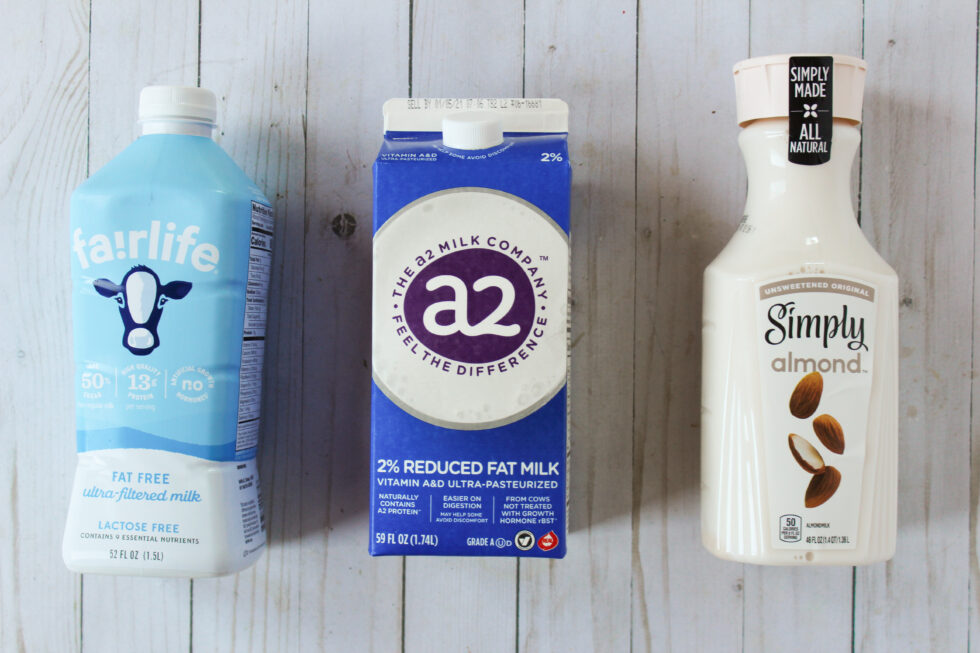
Science Saturday – Milk Showdown
Milk provides a wide variety of health benefits, it is naturally packed with calcium, phosphorus, potassium, multiple B vitamins, vitamin A, magnesium, zinc and selenium. One cup of whole milk provides 8 grams of protein. Most milk producers fortify (the process of adding a nutrient that is not naturally there) their product with vitamin D, this is done in order to help the body better absorb the calcium naturally found in milk. Regular consumption of milk is important to maintain a healthy body weight and prevent osteoporosis and bone fractures.
For children younger than 8 years old, 2 servings of dairy is recommended per day. For people over the age of 9 it is recommended to consume 3 servings of dairy per day. Other dairy products include yogurt and cheese.
There are many forms of milk that provide varying amounts of fat and nutritional benefits. There is whole milk, providing 3.25% milk fat, reduced fat milk (2% milk fat), low fat milk (1% milk fat), and fat free milk (skim). Other forms of milk include powdered milk and evaporated milk. Both of these forms offer a longer shelf life and a less expensive price (typically) than regular milk. For those who are lactose intolerant, lactose free milks are available such as milk from the brand Fairlife. A few naturally non-dairy milks include soy milk, coconut milk, oat milk and almond milk. These non-dairy milks offer a variety of nutritional benefits and are good substitutes for those who cannot have dairy products. If you are looking at making the switch talk to a Registered Dietitian to see if it’s in your best interest.
